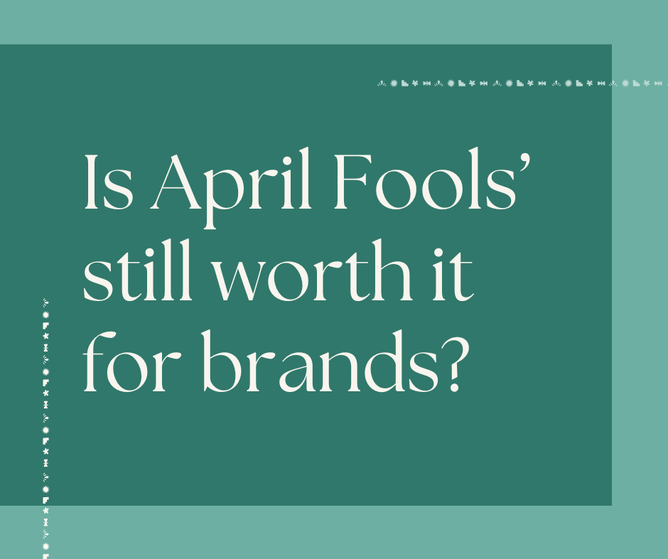Is April Fools’ Day marketing finally done for? I think so — and it’s about time.
There was a period when brands dropping cheeky joke products or absurd press releases on April 1st felt fresh, funny, and just disruptive enough to work. Who could forget Google’s annual Easter eggs or Burger King’s infamous left-handed Whopper? These stunts were harmless, surprising, and in many cases, genuinely clever.
But fast-forward to now, and the landscape feels different.
Audiences are more media-savvy, more skeptical, and more selective about where they place their attention. In this environment, trotting out a fake product or a goofy announcement just for the sake of an April Fools' post feels tired — or worse, off-brand. What once felt novel now often reads as lazy, predictable, or out of step with what audiences actually want.
The Problem With April Fools' Content
Let’s be honest: most April Fools’ Day content just isn’t that funny anymore. It’s overdone, it clutters people’s feeds, and it rarely has anything to do with the business behind it.
Even worse, it can leave people confused. Is that limited-edition pineapple-scented laptop real? Is this dog-walking drone actually for sale? Probably not. But in an era of deepfakes, misinformation, and brand trust being harder than ever to earn — the joke might not be worth the risk.
There's also the issue of tone. At a time when many people are navigating economic uncertainty, climate anxiety, or just trying to make it through their day, being “tricked” by a business can feel out of touch. It’s not that people don’t have a sense of humour — it’s that they can spot inauthenticity from a mile away.
Audiences Are Craving Something Real
Today’s audiences don’t just want a laugh. They want connection, meaning, and realness. They want to know who you are as a business — what you stand for, how you treat your people, and how you show up in the world.
That doesn’t mean you can’t be funny. It means humour should come from who you actually are, not from something made up for one day of the year. April Fools' jokes are, by design, forgettable. But real stories, thoughtful moments, and consistent brand personality? That sticks.
What to Do Instead
If you're a business trying to stand out or build genuine engagement, here’s what might serve you better than a fake press release:
Share a true story your customers wouldn’t expect — a weird origin story, a behind-the-scenes fail that turned into a win, or something funny that really happened.
Celebrate your team with a spotlight or a fun quiz post that shows their personalities (no prank required).
Highlight your values — maybe April 1 is the day you donate to a local cause, share a random act of kindness, or run a fun little giveaway.
Lean into light-hearted content that reflects your tone year-round, not just on April Fools’ Day.
The Bottom Line
April Fools’ Day content has had its moment. And yes, some of those stunts were iconic. But for most businesses today, the cost of feeling out of touch or inauthentic outweighs the benefit of a fleeting gag.
It’s time to retire the fake product launches and forced hijinks — and replace them with content that actually means something. Show up as yourself. Tell a better story. Be fun, if that’s your thing. Just don’t fake it.
Because in 2025, the best way to win people’s attention isn’t to fool them. It’s to respect it.



